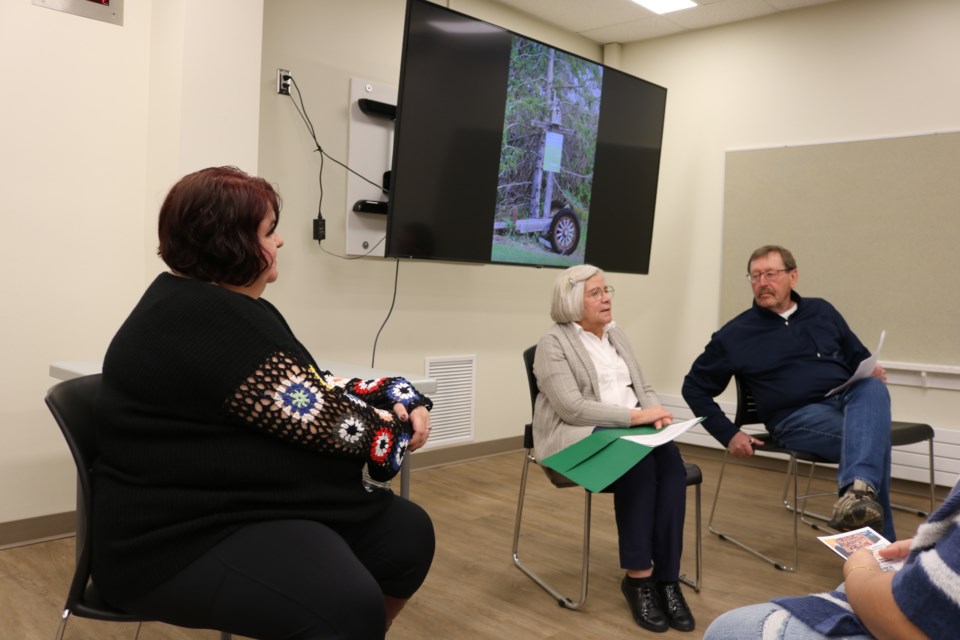YORKTON - The Yorkton Film Festival ‘Open Cinema’ screening of Reserve 107 - Reconciliation on the Prairies drew a near full room at the Yorkton Public Library.
The screening paid tribute to International Day for the Elimination of Racial Discrimination and was a partnership presentation with Yorkton Parks and Recreation, Multicultural Council of Saskatchewan and Yorkton Public Library.
Following the screening there was a discussion about the Treaty Land Sharing Network with area participants Morley and Paula Maier and former Treaty Commissioner Mary Musqua-Culbertson J.D.
The Maiers live on a farm south of Yorkton, land they have chosen to enrol in the Treaty Land Sharing Network.
“We believe we are all treaty people and those words need to be reflected in our actions,” said Morley Maier.
Morley said the events around the case of Colton Boushie a 22-year-old Indigenous man of the Cree Red Pheasant First Nation who, while trespassing, was fatally shot on a rural Saskatchewan farm, brought things into tighter focus for the couple.
“It was a very negative, frightening time that was happening in the province at the time (2016). It made most of us ask what the hell is going on? Why are our relationships with our First Nations people so broken ?”
When the TLSN came into existence it made sense to the Maiers.
The TLSN “is a group of farmers, ranchers, and other landholders who have come together to begin the crucial work of honouring Treaties,” details treatylandsharingnetwork.ca. “In the spirit of sharing the land, we welcome First Nations and Métis people to access the land that we farm to practice their way of life. We are committed to implementing the Treaty relationship, engaging in ongoing learning together as we practice being Treaty people, and establishing a different way forward for rural Saskatchewan . . .
“Members of the Treaty Land Sharing Network welcome Indigenous people to gather plants and medicines, hunt, and practice ceremony on the land that we farm. We believe this is a critical step toward upholding our responsibilities as Treaty people. The Treaty Land Sharing Network currently includes 46 locations and over 20,000 acres across Treaty 4 and Treaty 6. Our goal is to continue to expand the network of land that can be accessed, and we are always looking for new members.”
When it came to reasons to join the Network Morley Maier said at an event at their farm last summer while there were “lots of good reasons,” it came down to the short answer “we know our history . . . It’s not a good history.
“We don’t like it. We don’t want to be part of it anymore.”
Musqua-Culbertson said the land sharing network is important as it proves “a safe place to go to find medicines and do ceremonies.”
With that in mind she added the TLSN “needs to expand.” At present there are about 50 landowners involved and some 30,000 acres province wide.
The screening also brought the curtains down on the 2023/2024 Open Cinema.
The popular series will return in October for the opening of our 2024/2025 season with our Culture Day screening.






